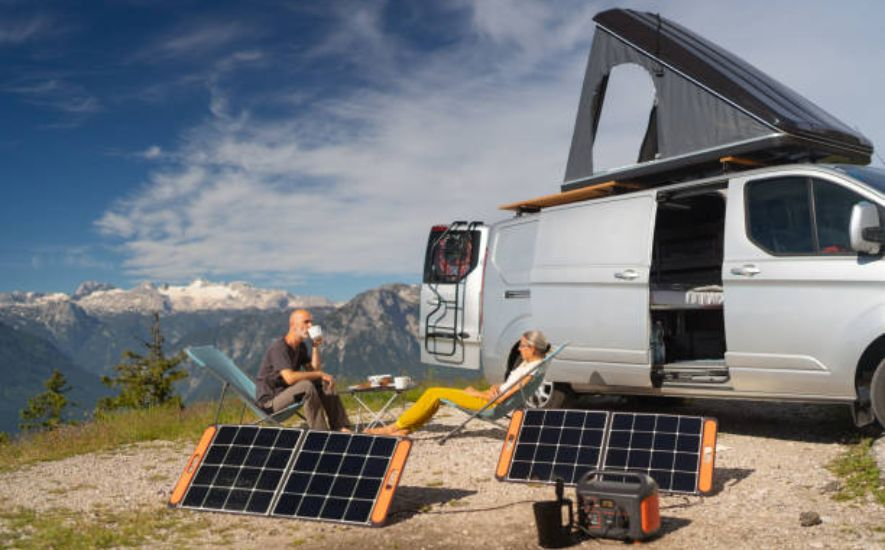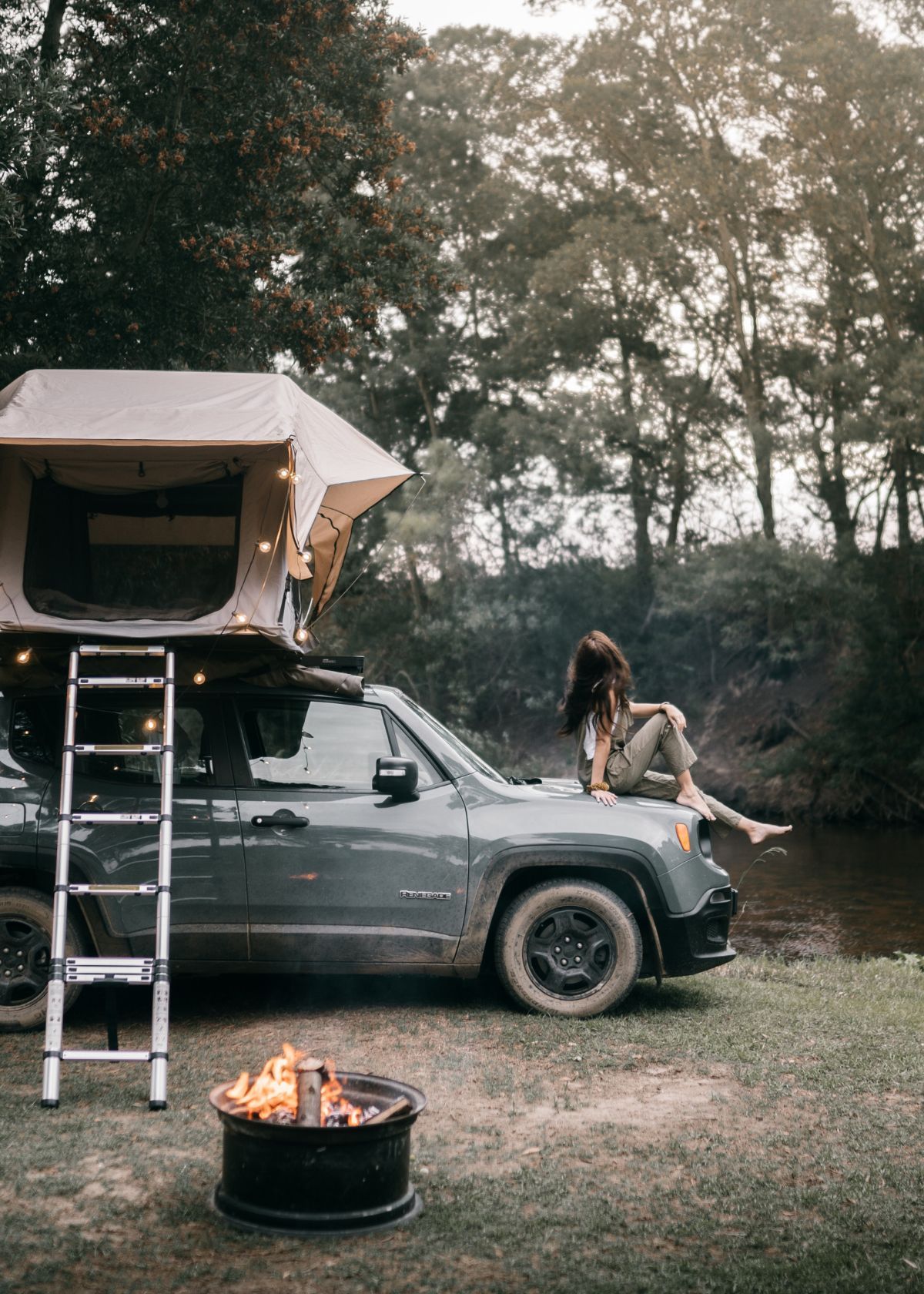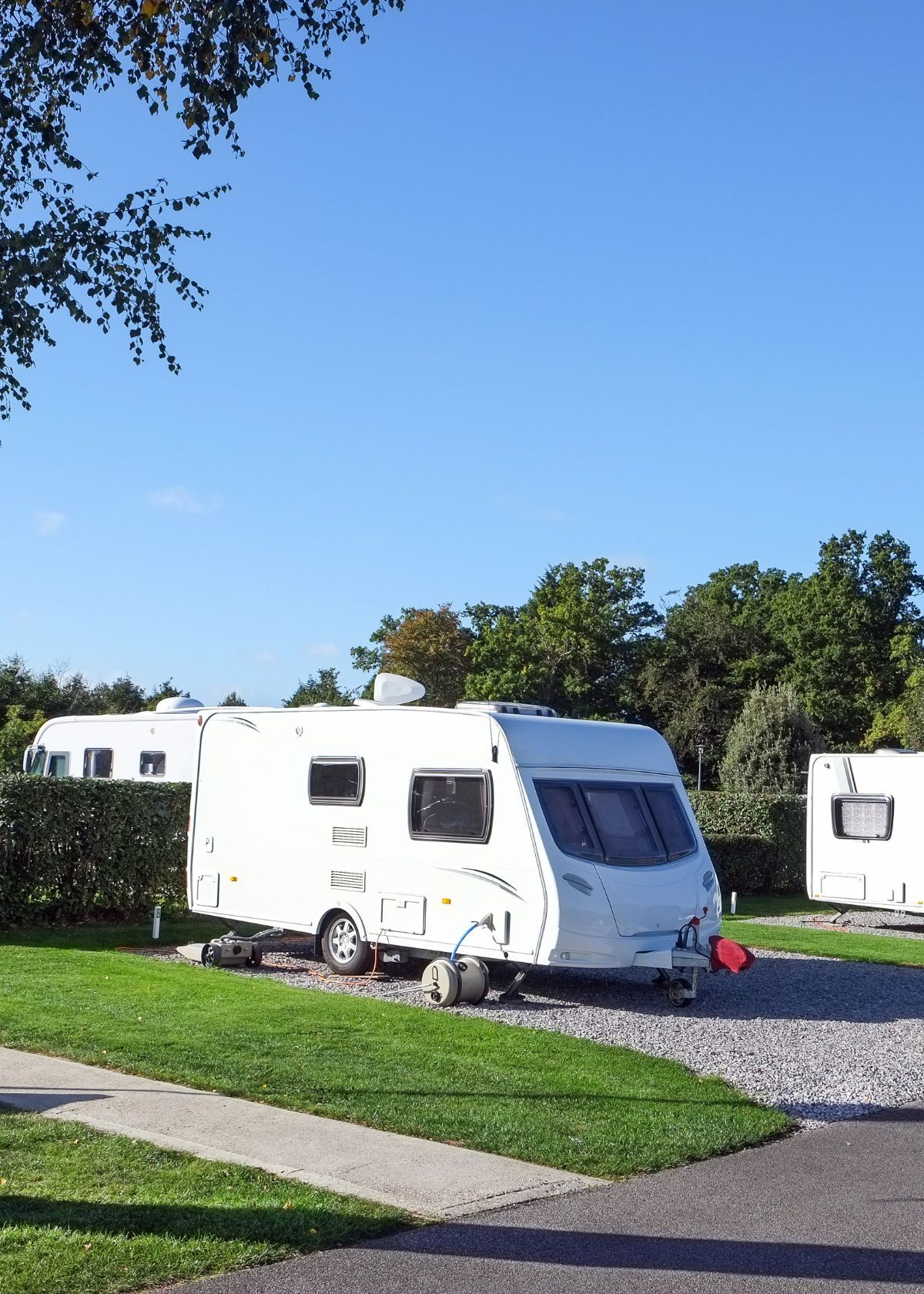Imagine hitting the open road with nothing but the wind in your hair and the sun on your face, your trusty camper trailing behind you. But before you embark on your journey, you'll need to know one important detail: how much does your camper weigh? It may not be the most exciting question, but it's a crucial one for anyone who plans to travel with a camper.
It's important to understand the weight of your camper to ensure a safe and enjoyable trip. Overloading your vehicle can lead to accidents, reduced gas mileage, and other issues. Additionally, many campsites have weight restrictions that must be observed. By knowing your camper's weight, you can make informed decisions about gear, supplies, and towing vehicles, which can save you money and prevent problems on the road.
But how much does a camper weigh, anyway? The answer is not straightforward, as the average weight can vary widely depending on the type of camper, its size, and the materials used to build it. From lightweight pop-up campers to massive fifth-wheel trailers, there's a camper out there to suit every lifestyle and budget. So, let's dive in and explore the world of camper average weights, so you can make informed decisions about your next adventure.
Factors Affecting Camper Weight
Camping is a popular activity enjoyed by people of all ages and backgrounds. However, it's important to consider the dry weight of your camping gear when planning your trip. Camper weight can affect everything from gas mileage to vehicle stability, so it's essential to understand the factors that can impact it.

Camping gear
The weight of your camping gear is one of the most significant factors that will affect your camper's weight. Everything from your tent and sleeping bags to your cooking equipment and food will add up quickly. It's important to pack only what you need and consider the weight of each item carefully.
Water and fuel
Water and fuel are essential for any camping trip, but they can also be quite heavy. Make sure you plan for the amount of water and fuel you will need, and don't carry any more than necessary. Consider packing a water filter and fuel-efficient stove to help manage the weight of these items.
Vehicle capacity
Your vehicle's weight capacity is an important factor to consider when planning a camping trip. Ensure you know your vehicle's weight limit and stay within it to ensure safe and comfortable travel.
Terrain and weather
The terrain and weather of your camping destination can also affect your camper's weight. If you're planning a trip through rough terrain or extreme weather, you may need to pack additional gear for safety and comfort. Be sure to consider these factors when planning your trip.
Trailer weight
If you're planning to use a camper trailer, it's important to consider the actual weight of the trailer itself. Be sure to choose a trailer that is appropriate for your vehicle and can safely carry the weight of your gear.

Choosing the Right Camper for Your Vehicle
For outdoor enthusiasts, hitting the road with a camper in tow can be an exciting adventure. Whether you're a first-time camper or a seasoned veteran, choosing the right camper for your vehicle can be daunting. There are several factors to consider, such as the size of your vehicle, the type of terrain you'll be traveling on, and your camping needs.

Types of Campers
Several types of campers are available, including pop-up campers, travel trailers, fifth-wheel campers, and motorhomes. Each type of camper has its own unique features, benefits, and drawbacks, and choosing the right one will depend on your camping needs and the size of your vehicle.
Size and Weight
Before choosing a camper, it's essential to consider the size and weight of your vehicle. Campers come in different sizes and weights, and you'll want to ensure that the camper you choose is within your vehicle's weight and size limits. Overloading your vehicle can cause damage to your vehicle's suspension and other components.
Camping Needs
Your camping needs will also play a crucial role in selecting the right camper for your vehicle. If you're a minimalist camper, a pop-up camper or a teardrop trailer may be the perfect option. A larger travel trailer or fifth-wheel camper may be more suitable if you're traveling with a family.
Budget
Lastly, your budget will also play a role in selecting the right camper for your vehicle. Campers come in a wide range of prices, and you'll want to ensure you choose a camper that fits your budget while still meeting your camping needs.

What Is the Exact Weight Of A Camper?
Camper enthusiasts and travelers often wonder about the exact weight of their beloved home on wheels. The weight of a camper is a crucial aspect that can affect its stability, safety, and towing capabilities. Determining the weight of a camper can be a tricky and challenging task, as it depends on various factors such as the model, type, size, and contents.
Understanding the Different Types of Weights
There are different types of weights associated with a camper, including gross vehicle weight rating (GVWR), unloaded vehicle weight (UVW), and cargo carrying capacity (CCC). We will explore each weight type and what they mean for the camper's performance and safety.
How to Measure the Weight of a Camper
Measuring the weight of a camper accurately is essential for ensuring its safety on the road. We will provide a step-by-step guide on how to measure the weight of a camper using different methods, such as tongue weight scales, weighing stations, and bathroom scales.
Why Knowing the Weight of Your Camper Matters
Understanding the weight of your camper is crucial for safe towing, fuel efficiency, and overall performance. We will explain the importance of knowing your camper's weight and how it can help you make informed decisions about your travels.

Impact of Camper Weight on Road Safety
Traveling by road has become a common mode of transportation for many people, whether it's for leisure or work. One popular way of experiencing the freedom of the open road is by traveling in a camper or recreational vehicle (RV).
Camper weight is an essential aspect of road safety that many travelers overlook, and it can have significant implications on both the driver's safety and that of other road users.

Effects of Camper Weight on Vehicle Stability
Camper weight has a direct impact on a vehicle's stability. An overweight camper can cause the vehicle to sway, which can lead to a loss of control and accidents. We'll explore the physics behind this phenomenon and provide tips on how to ensure your camper is correctly loaded for optimum stability.
Braking Distance and Camper Weight
The weight of a camper can significantly impact a vehicle's braking distance. A heavier camper requires more distance to come to a complete stop, making it essential to adjust driving speed and maintain appropriate braking distances. We'll delve into the mechanics of braking and explain how to adjust your driving style when towing a camper.
Tire Wear and Camper Weight
The weight of a camper can cause uneven tire wear, which can lead to blowouts, compromising road safety. We'll examine the effect of camper weight on tire wear and provide tips on tire maintenance and replacement.
Safety Precautions when Towing a Camper
Towing a camper requires extra care and attention to ensure the safety of the driver and other road users. We'll provide a comprehensive list of safety precautions, including speed limits, loading tips, and towing equipment, to help you minimize the risks associated with camper weight.

Innovative Camper Designs for Lightweight Travel
The beauty of traveling lies in the experience of discovering new places and getting out of your comfort zone. With the rise of digital nomads, van life, and people seeking the freedom to travel while still enjoying the comforts of home, camper designs have evolved to cater to these needs.

The rise of lightweight travel With the world becoming more eco-conscious, travelers are now more mindful of their carbon footprint. As a result, there is a rise in demand for lightweight travel options that are environmentally friendly and easy to maneuver.
Smart storage solutions
When designing a lightweight camper, every inch counts. Smart storage solutions that maximize space while still maintaining a minimalist feel are becoming increasingly popular.
From fold-away tables and chairs to built-in storage compartments, these innovative designs make it easy to pack everything you need while still keeping the camper lightweight.
Flexible living spaces
Gone are the days when campers were limited to a single-purpose space. Today, camper designs are more flexible and adaptable, able to transform easily from a kitchen to a bedroom. Designs that feature movable walls and convertible furniture, such as fold-out beds and tables, are now popular.
Cutting-edge materials
The materials used in building lightweight campers have evolved over the years, with designers now incorporating more sustainable and high-performance materials. From lightweight composites to 3D-printed materials, the focus is on creating a functional and eco-friendly camper.
High-tech amenities
Travelers today demand high-tech amenities, even when on the road. These features are now available in lightweight campers, from solar-powered energy systems to Wi-Fi and smart home automation. Innovations in battery technology have made it possible for campers to be fully self-sufficient, with the ability to power appliances and charge devices.

How to Maintain Your Camper's Weight
Owning a camper can be an incredibly exciting experience. It allows you to travel to new places, explore the outdoors, and create lasting memories with loved ones.
However, it is important to remember that with the joys of owning a camper comes the responsibility of properly maintaining it, especially its weight. Proper weight maintenance can lead to better fuel efficiency, improved handling, and, most importantly, safer travel.
Weighing Your Camper
To accurately maintain your camper's weight, you need to know how much it currently weighs. Weighing your camper before and after a trip can help you keep track of the weight distribution and ensure that you are not exceeding the weight limit. You can weigh your camper at a truck stop or other certified scales.
Proper Weight Distribution
Once you know your camper's weight, it's important to distribute it properly. Uneven weight distribution can affect the handling of the vehicle and lead to safety hazards. You can use weight distribution hitches, sway bars, and other accessories to help distribute the weight properly.
Pack Light and Smart
When packing for a trip, it's important to be mindful of what you bring and how it adds to the weight of your camper. Try to pack only the essentials and avoid overpacking. Consider investing in lightweight gear and storing heavier items towards the center of the camper to help distribute the weight more evenly.
Regular Maintenance
Regular maintenance of your camper can also help with weight maintenance. Keeping your vehicle in good condition can prevent excess weight due to wear and tear and ensure the camper runs efficiently.

Frequently Asked Questions (FAQs)
The weight of your camper is a factor in the amount of fuel you use, how much wear and tear there will be on your tires, and how much it costs to tow it behind you. Here are some answers to common questions about camper weight.
How much does a 24-foot camper weigh?
The weight of a 24-foot camper can vary depending on the make and model and any additional features or equipment installed. Generally, a 24-foot camper can weigh anywhere from 4,000 to 8,000 pounds (1,800 to 3,600 kg) when unloaded or without any cargo or passengers.
However, it is important to note that the weight can increase significantly when fully loaded with supplies, water, and other belongings. It is recommended to check the manufacturer's specifications and consult a qualified professional to determine the exact weight of a particular camper and ensure that it is safely and properly towed by the vehicle used.
How much does a 27 foot camper weigh?
As a general rule of thumb, most 27-foot campers typically weigh between 5,000 and 7,000 pounds when empty. The weight of a camper will vary based on a variety of factors, including the materials used in construction, the type of appliances and amenities included, and the amount of water and fuel on board.
The weight capacity of a tow vehicle should also be considered when determining if a particular camper is a good match for a specific towing vehicle.
To get a more accurate estimate of the weight of a particular 27-foot camper, it's best to consult the manufacturer's specifications or have the camper weighed at a certified weigh station.
How heavy is a trailer in kg?
The weight of a trailer can vary widely depending on its size, design, and purpose. A small utility trailer may weigh just a few hundred kilograms, while a large commercial trailer can weigh several tonnes. Additionally, the trailer's weight doesn't necessarily include any cargo or equipment that may be loaded onto it, which can further increase its weight.
When towing a trailer, it's important to ensure that the trailer's combined weight and contents don't exceed the maximum weight limit for the towing vehicle. Exceeding this limit can be dangerous and can cause the vehicle to handle poorly, potentially leading to accidents.
Overall, the weight of a trailer can vary greatly and is dependent on several factors, so it's important to consider this when towing one.
Can a "1500" carry a truck camper?
It depends on the specific make and model of the truck and camper, the camper's weight, and any additional cargo. Generally, a half-ton truck with a maximum towing capacity of 7,000-9,000 pounds may be able to carry a lightweight truck camper weighing around 1,500 pounds.
However, it's important to consult the owner's manual or a qualified mechanic to determine the truck's specific towing and payload capacity and any necessary equipment or modifications for safe and legal hauling of a truck camper.
Do truck campers have toilets?
Many truck campers do have toilets, although not all of them do. Some truck campers may have a built-in cassette or composting toilet, while others may require the use of a portable toilet.
The availability of a toilet in a truck camper depends on the model and features of the camper, as well as the owner's personal preferences. If having a toilet is important to you, it's recommended that you research specific truck camper models to find one that includes a toilet or can accommodate a portable toilet.
Can you live full-time in a truck camper?
Yes, living full-time in a truck camper is possible, although it may not suit everyone. Truck campers are compact and mobile, making them an ideal choice for those who wish to travel frequently or live a minimalist lifestyle.
However, living in a truck camper requires careful planning and organization, as space is limited. You will need to make sure you have access to basic amenities such as water and electricity and find ways to maximize storage space. It's also important to ensure your truck camper is legally parked and lived in according to local laws and regulations.
Conclusion
In conclusion, the weight of a camper can vary greatly depending on the type and size of the unit, as well as the materials used in its construction. Before purchasing or using a camper, it is important to know its weight and ensure that it is compatible with your vehicle and towing capacity.
By understanding the weight of your camper, you can make informed decisions and enjoy the freedom and adventure that comes with life on the road. So, whether you're a seasoned camper or a novice explorer, remember that the weight of your camper is an essential consideration for a safe and successful journey.










